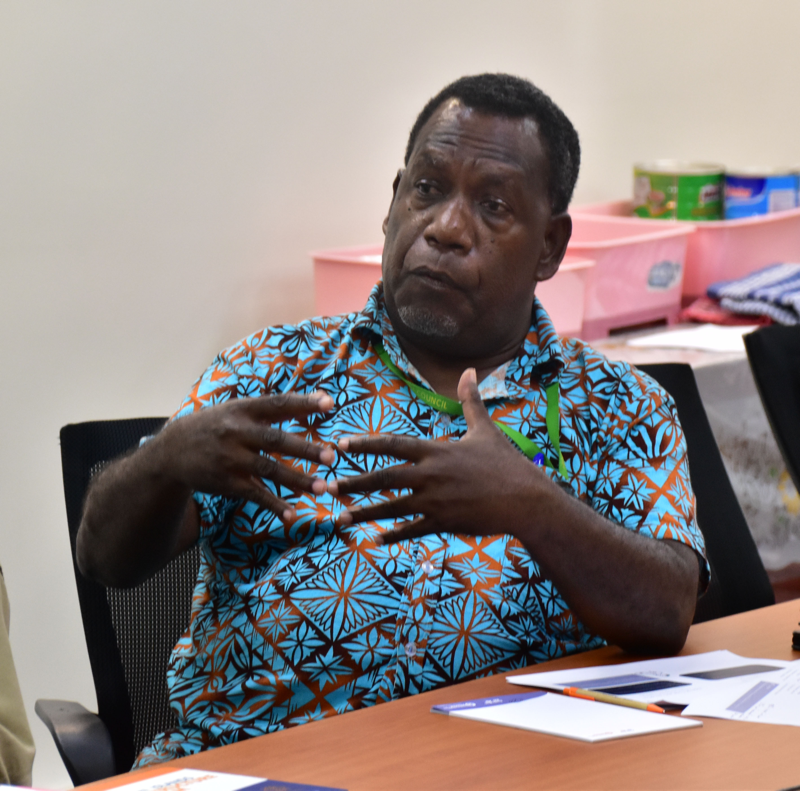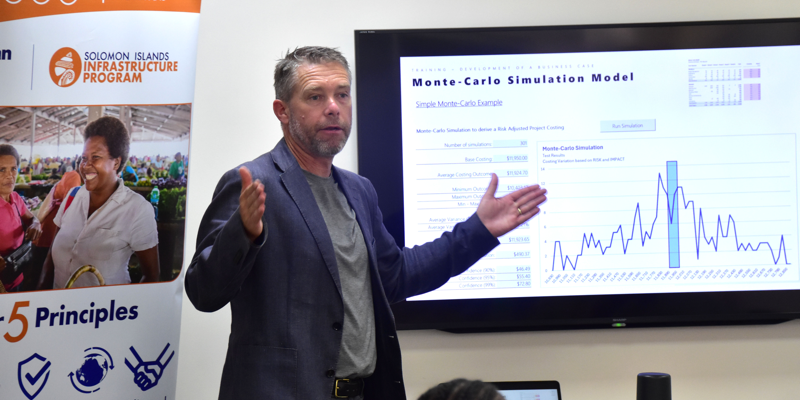Local officials have attended a series of five targeted training sessions to strengthen critical infrastructure in Solomon Islands, through better planning, financing and delivery.
Australia’s Solomon Islands Infrastructure Program trained a total of 38 participants from six government agencies, state-owned enterprises, and the Honiara City Council.
Australian High Commissioner to Solomon Islands, His Excellency Rod Hilton, said it is essential to invest in the local people required to develop infrastructure, and not just hard infrastructure itself, in order to improve infrastructure outcomes in Solomon Islands.
“Strengthening local expertise is key to Australia’s partnership to support Solomon Islands to plan, finance and deliver infrastructure for economic growth,” High Commissioner Hilton said.
“This training reflects our commitment to local jobs and making sure the work goes to Solomon Islands companies so we can grow the economy.”
Delivered by economic experts from Australia, the training covered essential topics, including economic modelling, fraud awareness, risk assessment, business case development, data analysis, and infrastructure planning.
Participants said they found the training valuable, particularly in strengthening risk assessment and data analysis.
Principal Planner for Education, Ministry of National Planning and Development Coordination, Mr Starling Konainao, said the training reinforced the importance of proactive planning.

“Identifying risks early ensures more effective and transparent project delivery,” Mr Konainao, said.
Honiara City Council’s Gabriel Riotarau said risk assessment was also crucial for balancing priorities and overcoming challenges.
“Applying economic modelling to our local context helps us manage projects efficiently and sustainably,” Mr Riotarau said.
Training facilitators Scott Alexander and Michael Buerger stressed the importance of applying data-driven insights and risk management in infrastructure planning.
“Understanding the financial and risk implications of infrastructure projects is crucial, and this training equips government with the tools to make informed decisions and improve project outcomes,” Mr Alexander said.
The training is part of a larger program of capacity building being delivered by Australia’s Solomon Islands Infrastructure Program to support better planning and delivery of quality infrastructure by government and the private sector.
- AHC









